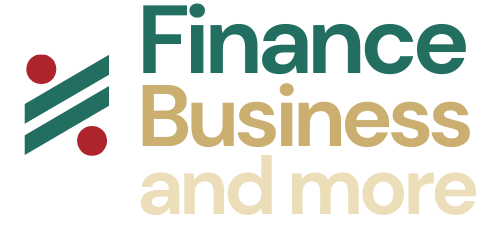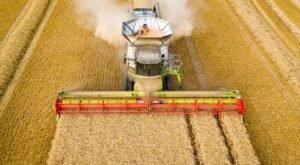Fleet insurance is more than just another expense—it’s peace of mind and a practical way for farmers and agricultural workers to safeguard their livelihoods. This comprehensive guide will explore what fleet insurance is, the different types available, and how it can benefit agricultural businesses. From risk management to cost savings, we’ll walk you through why fleet insurance is essential and how to find the best policy for your needs.
Understanding Fleet Insurance
Fleet insurance is a policy designed to cover multiple vehicles under one plan. Instead of handling individual insurance policies for every truck, tractor, or piece of agricultural equipment, fleet insurance simplifies the process into a single, manageable solution.
Picture this scenario: Your farm’s delivery truck breaks down, or one of your tractors is damaged while plowing a field. Without insurance, the repair costs can quickly pile up and cripple your operations. With fleet insurance in place, these unforeseen events are no longer financial disasters but manageable hiccups.
For farmers and agricultural workers, fleet insurance isn’t just convenient; it’s a lifeline for their business, offering coverage tailored to protect their specific assets and day-to-day operations.
What Types of Fleet Insurance Are Available?
Fleet insurance policies vary based on the vehicles, drivers, and specific risks needing coverage. Below are some of the key types of fleet insurance applicable to farmers and those working in agriculture.
1. Comprehensive Fleet Insurance
This is the most extensive type of coverage, offering protection for damages to your vehicles, third-party property, theft, and even fire incidents. For farmers transporting goods or relying heavily on machinery, comprehensive coverage is a wise choice.
2. Third-Party Only Insurance
Mandatory in most regions, this covers damage to someone else’s property or injury to another person in the event of an accident caused by one of your vehicles. While it’s cheaper, it doesn’t cover your vehicles.
3. Equipment Coverage
From tractors and combines to forklifts, agricultural equipment is often covered too. This add-on ensures coverage beyond standard vehicles, perfect for farms using expensive machinery daily.
4. Driver-Specific Coverage
Farms that employ multiple workers benefit from policies that insure drivers rather than just vehicles, ensuring every authorized person is covered behind the wheel.
By choosing a policy that aligns with your operations, you can ensure all farm vehicles and equipment are prepared for the unexpected.
The Top Benefits of Fleet Insurance
Fleet insurance isn’t just about protection—it comes with significant benefits that can make a difference on your bottom line and business operations.
1. Simplified Management
With fleet insurance, everything is consolidated into a single policy. Whether you operate three vehicles or twenty, all your coverage is managed in one place, saving time and reducing administrative hassle.
2. Cost Savings
Purchasing individual policies for every vehicle can quickly add up. Fleet insurance often comes with discounted rates due to bundling. Over time, this creates meaningful savings for farms operating large fleets of equipment.
3. Legal Compliance
Most regions require that all vehicles have a minimum level of insurance. Fleet insurance ensures all your vehicles are compliant, reducing the risk of costly fines or legal complications.
4. Enhanced Risk Management
The unpredictable nature of farming means risks are high. Fleet insurance provides a financial safety net when vehicles break down, accidents happen, or machinery is stolen. This allows you to focus on maintaining productivity without the constant worry of financial risks.
5. Peace of Mind
Knowing your fleet is protected enables you to focus on your work. Whether delivering fresh produce to market or plowing the field, you can rest easy knowing you’re covered.
What Should You Consider When Choosing Fleet Insurance?
Finding the right fleet insurance involves carefully evaluating your farm’s needs. Here are some key factors to consider before making a decision.
1. Fleet Size
How many vehicles or pieces of equipment are you insuring? Some providers have specific policies designed for smaller fleets, while others cater to larger operations.
2. Type of Vehicles
Are you insuring delivery trucks, tractors, or specialized equipment? Ensure that your policy covers all types of vehicles and machinery you need to operate.
3. Coverage Level
Do you need comprehensive coverage, or would third-party insurance suffice? Calculate potential risks and decide what level of protection provides the best balance between affordability and coverage.
4. Driver Requirements
If multiple workers need to use your vehicles, consider a policy with driver-specific coverage to avoid leaving any gaps.
5. Farm-Specific Risks
Farms face unique challenges, from rural road accidents to machinery breakdowns during critical work periods. Ensure your policy accounts for these potential risks.
Real-Life Examples of Fleet Insurance in Action
Case Study 1
A family farm in Kansas insured their fleet of delivery trucks with comprehensive fleet insurance. When one of their trucks was rear-ended during a delivery, the repairs were fully covered, and they were reimbursed for lost income while the truck was out of commission. Without this coverage, the unexpected repair costs could have caused major financial strain.
Case Study 2
A dairy farm in Wisconsin experienced an unexpected fire that damaged two of their tractors. Thanks to their fleet insurance, not only were the repair costs covered, but they also received compensation for disruptions to their winter planting schedule.
These examples highlight how fleet insurance can prevent significant financial setbacks in agriculture.
How to Secure the Right Fleet Insurance
Here’s a step-by-step guide to obtaining the right policy for your agricultural business.
- Assess Your Needs
Determine what assets you need to insure and the risks you’d like to cover.
- Research Providers
Look for insurance companies that offer policies tailored for agricultural businesses. Not all providers will have experience dealing with rural-specific needs.
- Request Quotes
Obtain quotes from multiple providers to compare pricing and coverage.
- Check Reviews and Ratings
Review testimonials and ratings to ensure you’re choosing a reputable insurance provider.
- Ask Questions
Don’t hesitate to ask providers about what’s included (or excluded) in your policy. Clarify deductibles, limits, and add-on options.
- Finalize and Review
Once you’ve selected a policy, review the fine print thoroughly before signing. Ensure the coverage aligns perfectly with your needs.
Why Fleet Insurance is Non-Negotiable for Farmers
For farmers and agricultural workers, every vehicle, piece of equipment, and driver is critical to the success of daily operations. Fleet insurance isn’t just a smart business decision—it’s essential for risk management and peace of mind.
By securing a policy tailored to your farm’s needs, you can safeguard your fleet while enjoying savings, simplified management, and valuable protections.
If you’re ready to take the next step in protecting your business, start exploring fleet insurance options that match your needs today. You deserve the peace of mind that comes with knowing your livelihood is protected.


